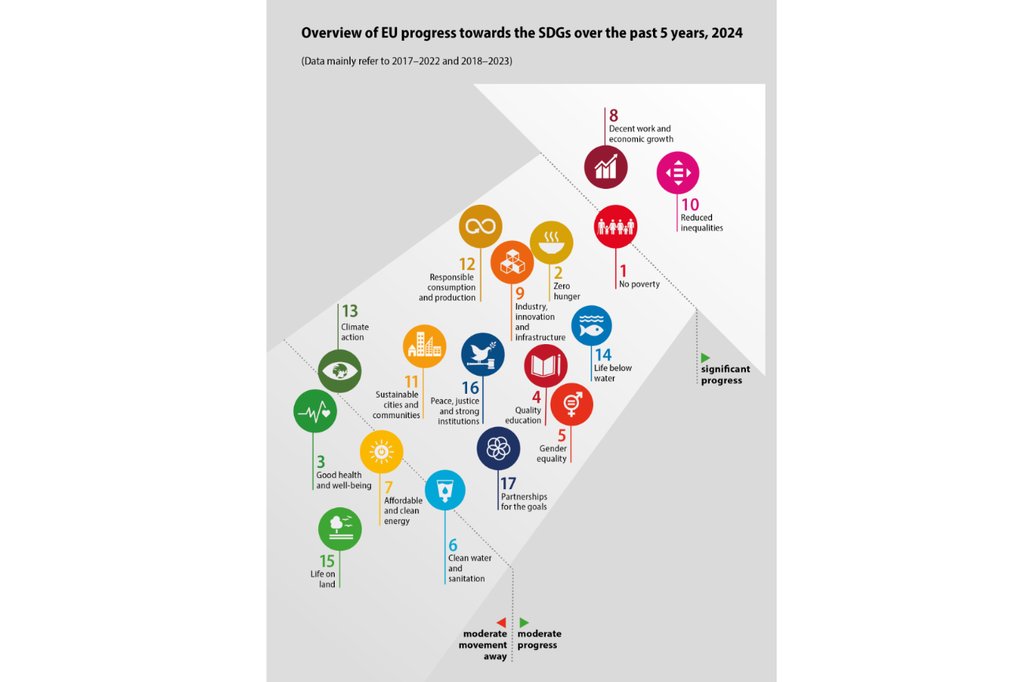The annual Eurostat monitoring report shows how the EU is doing with the UN’s Sustainable Development Goals by analysing the development of the 17 SDGs. INFRAS once again contributed to the analysis for the 2024 edition.

The 17 UN Sustainable Development Goals (SDGs) form the core of the 2030 Agenda and seek to help achieve sustainable development on a social, environmental and economic level worldwide. The EU has also committed to these goals.
Every year, the ‘Monitoring report on progress towards the SDGs in an EU context’ produced by the EU’s statistics agency Eurostat analyses current trends in the 17 goals within the EU and its individual member states plus Switzerland and Norway.
In-depth look produces a nuanced picture
As well as the general trend, the SDG monitoring report also offers a nuanced view of the progress and setbacks for each individual SDG. For example, under the ‘Quality education’ goal, it shows that participation in educational programmes increased in general. However, school students’ level of education dropped according to the PISA study – for reading as well as for mathematics and science.
INFRAS analysis for five of the 17 SDGs
The ‘Quality education’ SDG is one of the five for which INFRAS provided analysis:
- SDG 1: No poverty
- SDG 3: Good health and well-being
- SDG 4: Quality education
- SDG 5: Gender equality
- SDG 9: Industry, innovation and infrastructure
INFRAS and the Ecologic Institute have been an integral part of the project team, headed up by the Vienna University of Economics and Business, since 2016. The monitoring report focuses on short-term and long-term developments over the last five and fifteen years. Trends are analysed based on around 100 indicators.
More information




